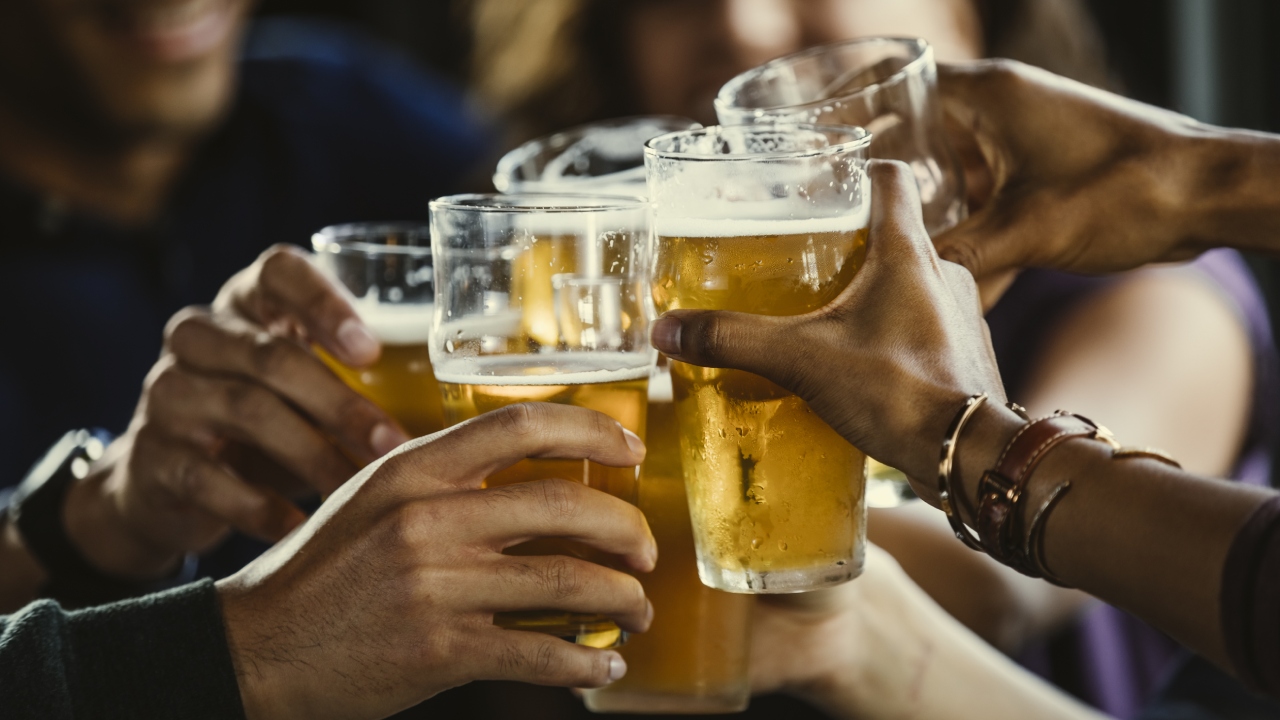5 ways alcohol can sabotage your weight loss goals, according to an obesity doctor

Alcohol and weight loss
“Hey Siri, can I still lose weight if I drink alcohol?” Goodness, we only wish the answer was that simple. Research is mixed (no pun intended) on whether alcohol can lead to weight gain. That’s because weight is complex – and some people notice a shift on the scale when they consume alcohol, while others don’t.
As a doctor who specialises in the science of weight, I can say what we do know is that many of these alcoholic drinks are energy-dense (meaning high in kilojoules) and provide little to no nutrition, which may put a damper on your weight loss efforts. Here are five major reasons alcohol can impede you weight loss efforts.
Your body views alcohol as a toxin
Your body metabolises and eliminates alcohol from the body with the help of two enzymes: Alcohol dehydrogenase (ADH) and aldehyde dehydrogenase (ALDH). When you imbibe, these two work together to break apart the alcohol molecules, producing a toxic substance, acetaldehyde, then acetate, so that your body can get rid of it – and fast.
Here’s why that matters when you’re trying to lose weight. Since your body prioritises alcohol digestion, it puts digestion of other nutrients (like fat, carbs, and protein) on the back burner. In other words, your body might put off metabolising fat and carbs when it’s busy breaking down alcohol. Over time and repeated patterns, this could lead to increased fat storage and weight gain.
Alcohol can cause inflammation
Alcohol can impair the functions of the gut, liver, and other organs – interfering with the immune system and causing systemic inflammation. Alcohol consumption stimulates a cascade of inflammatory responses, one of which is the release of cortisol, the stress hormone. And research has shown that persistently high levels of cortisol are associated with obesity. That’s why it’s best for people with obesity, who are already at an increased risk of inflammation, to limit or avoid alcohol.
Alcohol affects sleep - and sleep impacts weight
It may seem like that nightcap helps you fall asleep, but alcohol can actually disrupt how well you snooze. One study, which looked at participants’ heart rates and ability to relax during sleep, showed that even small amounts (0.25 grams per kilogram or less) of alcohol decreased those markers of quality of sleep by 9.3%.
And the more you drink, the worse you sleep – the same study linked moderate drinking to a 24% decrease in sleep quality, and heavy drinking to a 39.2% decrease in sleep quality.
You may think a few nights of low-quality shut-eye is harmless, but research has shown that just one to three nights of poor sleep can lead to insulin resistance. Over time, that could put you at risk of obesity.
Alcohol is often full of sneaky of sneaky kilojoules and sugar
Many mixed drinks, tasty as they might be, contain added kilojoules and sugar on top of the naturally occurring sugars and kilojoules in alcohol.
Even a so-called “lower-kilojoule” option, like a vodka tonic, can have as many kilojoules and grams of sugar as a serving of ice cream. Before you know it, your 30ml serving of vodka just jumped from 280 kilojoules to 700 kilojoules when you add 200ml of tonic. Have a few of those, and you’re looking at upwards of 2000 or more kilojoules on liquid alone – kilojoules that don’t provide your body with the best nutrition.
Let’s compare these 2000 kilojoules in a few vodka tonics to a 2000-kilojoule meal of salmon, brown rice, and steamed veggies. The drinks are empty kilojoules, whereas the meal has fat, fibre and protein to keep you fuller and satisfied for longer – a win-win while trying to lose weight – while also providing high-quality nourishment.
Drinking impacts food choices
Have you ever noticed after drinking alcohol, you get a sudden hankering for a fast food run or pizza delivery? That’s because alcohol can impair decision-making and lead to impulse decisions when it comes to food – and research suggests it may even stimulate the appetite. Those who drink alcohol with a meal also tend to eat more – 30% more, according to one study.
While alcohol won’t impact everyone’s weight the same way, it’s best to be mindful of how much you drink when trying to lose weight. Consider skipping it altogether or aim for moderation. Just know that even if you follow the limit for moderate drinking as recommended in the Australian Alcohol Guidelines by the National Health and Medical Research Council (NHMRC) —no more than 10 standard drinks a week and no more than 4 standard drinks on any one day – it still adds up over time. Several studies have shown that the risk of obesity is roughly two times higher in adults who consume alcohol than in those who don’t.
Considering mocktails (non-alcoholic beverages) are popping up on more and more bar menus these days, rest assured your after-work social hour will still be filled with cheers. Just be sure to opt for a lower-kilojoule option, such as soda water with a squeeze of fresh lime or a craft mocktail with half the amount of simple syrup.
Image credits: Getty Images
This article originally appeared on Reader's Digest.
